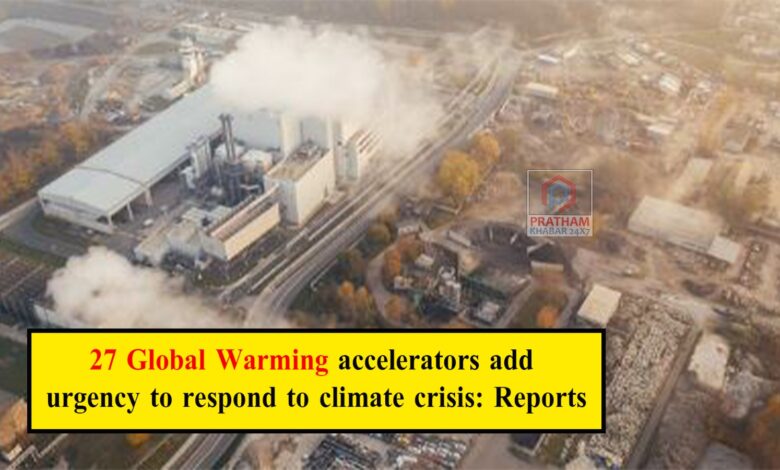27 global warming accelerators add urgency to respond to climate crisis: Reports
27 global warming accelerators respond to climate crisis

Scientists have identified 27 global warming accelerators known as amplifying feedback loops, including some that the researchers said may not be fully accounted for in climate models.
Scientists said that the findings added urgency to the need to respond to the climate crisis.
In climate science, amplifying feedback loops are situations where a climate-caused alteration can trigger a process that causes even more warming, which in turn intensifies the alteration.
An example would be warming in the Arctic, leading to melting sea ice, which results in further warming because sea water absorbs rather than reflects solar radiation.
The international collaboration, led by Oregon State University (OSU), US, researchers, also provided a roadmap for policymakers aiming to avert the most severe consequences of a warming planet, they said.
The findings have been reported in the journal One Earth.
“Many of the feedback loops we examined significantly increase warming because of their connection to greenhouse gas emissions,” OSU College of Forestry postdoctoral scholar and one of the lead researchers Christopher Wolf said.
“To the best of our knowledge, this is the most extensive list available of climate feedback loops, and not all of them are fully considered in climate models. What’s urgently needed is more research and modeling and an accelerated cutback of emissions,” said Wolf.
The study considered both biological and physical feedbacks.
Biological feedbacks included forest dieback, soil carbon loss and wildfire, while physical feedbacks involve changes such as reduced snow cover, increased Antarctic rainfall and shrinking arctic sea ice.
Even comparatively modest warming is expected to heighten the likelihood that the Earth will cross various tipping points, the researchers said, causing big changes in the planet’s climate system and potentially strengthening the amplifying feedbacks.
Climate models may be underestimating the acceleration in global temperature change because they aren’t fully considering this large and related set of amplifying feedback loops.


